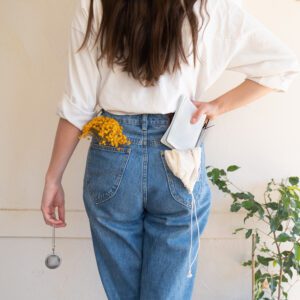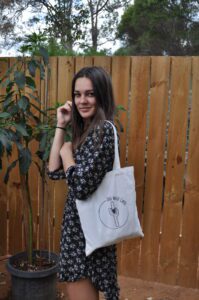It turns out that the band Aqua had it wrong when they sang the words “life in plastic, it’s fantastic.”
The aforementioned lyrics in question were from a song released in the 90s, and our plastic problem has continued to grow exponentially. Plastic is not just a pollution problem it’s a climate change one, and it holds 3.8% of the responsibility for greenhouse gas emissions, almost double the emissions of the aviation sector (Zheng & Suh, 2019).
Plastic emits greenhouse gases into the atmosphere at its four stages of existence which include:
- Extraction and transportation of fossil fuels;
- Refining and manufacture;
- Waste management; and
- Degradation in natural environments.
If it were a country, plastic would be the fifth-highest emitter in the world. Australians are the biggest consumers of single-use plastic waste globally, producing an average of 59kg of plastic waste per person a year.
The more plastic made that we use, the more fossil fuels we need, and in turn, we exacerbate climate change. It is estimated that by 2040, there will be 1.3 billion tonnes of plastic waste present in our environment.
So how do we address the problem?
TOGETHER.
“Every person can be part of the solution, and every action counts towards this shared goal.”
– Rebecca Prince-Ruiz, Founder and Executive Director of Plastic Free July and the Plastic Free Foundation
Plastic Free July offers the perfect opportunity to kick start making a change that not only benefits the health of the planet but your health too. The Plastic Free July website offers hints and tips on how to safely reduce plastic in your life amidst the global pandemic and notes that whilst taking care of human health is critical, at the same time there is an opportunity to reduce plastic waste, increase reuse and recycling efforts and use valuable resources such as food more efficiently.
It is important to note that plastics, while polluting the planet, also pollute our bodies. A recent research study estimated that we ingest about 250 grams of microplastics a year (roughly the size of a credit card, just for reference). There has never been a better reason to get on board.
The team from Carbon Positive Australia can help you get started:
“Environmental sustainability isn’t about perfectionism, and it’s not a competition. It’s about doing what you can and starting where you are. I encourage everyone to take a look at what they use most often and the things they love. For me, this has included the following:

- Switching to a reusable coffee cup. Everyone knows how much I love coffee, and my Huskee cup goes everywhere with me. It is estimated that Australian’s use 1 billion disposable coffee cups each year so if we all made the change to reuseable imagine the difference we could make.
- Keeping reusable cutlery in my handbag and shopping bags in my car. If I leave them in the car, my local shop has Boomerang Bags which is a global grassroots movement connecting and empowering local communities to tackle plastic pollution at the source. To date, they have made 522,361 bags and saved 182,826 kilograms of waste from landfill.
- When it comes to beauty products, I try to choose products that are in glass or made from recyclable cardboard and metal. Eye of Horus Cosmetics is always a go-to for me.
What you buy really makes a difference, but what you share with others can also make a more considerable difference. When it comes to shopping online, a number of companies I purchase from have taken to using the Better Packaging Co. For those deliveries where it’s packaged in plastic, I always email the company letting them know my thoughts and encourage anyone to do the same. Lastly, I can’t walk past a piece of littered plastic on the street without picking it up and disposing of it; it’s a small way to do your part for Mother Earth”. – Lauren Purcell, Donor Engagement & Campaign Coordinator
“When it comes to Christmas, plastic waste increases ten-fold, and a lot of this comes down to wrapping paper. Many people don’t realise that most wrapping papers are designed with plastic materials, and let’s not get started on the tape. I started using scrap fabric to make reusable gift bags. I now have a whole pile that I can grab from whenever I have to wrap things and reuse them for our children for birthdays and holidays.” – Christine O’Brien, Lead Creative & Brand Strategist
“When it comes to eating in or eating out, there are so many changes you can make. I have implemented the following and would encourage the following:
- Using reusable mesh bags for putting veggies in at the shop.
- Asking for your sushi on a napkin and not in a plastic box and refuse the horrid little plastic fish soy sauce and ask for it from the bottle.
- Buy tea bags that don’t have microplastics in them (this saves you and the marine life). You can find a list of plastic-free ones here.
- Take your reusable containers when you buy takeaway (this can be tricky with the current COVID regulations, but it is always worth asking).
Also when it comes to toiletries, use shampoo and conditioner bars instead of buying bottles and buy locally, unwrapped soaps at your local market.” – Pollyanna Darling, Community Projects Manager
Another great way to reduce your environmental impact is to look at your overall carbon footprint. Plastic Free July offers the perfect opportunity to take that first step and reflect on your current lifestyle habits. To look more broadly at this, our carbon footprint calculator will help you to reduce your impact across all sectors, including:
- Travel (long-distance travel including road, air, rail & ocean)
- Energy (electricity and other utilities)
- Water (state water supply)
- Transport (local travel via vehicles and public transport)
- Food and Drink (household grocery and dining)
- By category or diet type (omnivore, pescatarian, vegetarian, and vegetarian
- Waste (general waste disposal)
At the end of your calculation, you’ll get an itemised footprint “receipt” with tailored insights to help you reduce your impact over time. All you need is 5-10 minutes, a desktop or mobile device, and a desire to change the earth for the better!
You can get started by heading to the calculator here.
This Plastic Free July, let us all try to change our habits for the good of the earth, start small by refusing single-use plastics and walk a little lighter on the earth by taking a look at your footprint!
References:
Zheng, J., & Suh, S. (2019). Strategies to reduce the global carbon footprint of plastics. Nature Climate Change, 9(5), 374-378. doi: 10.1038/s41558-019-0459-z


